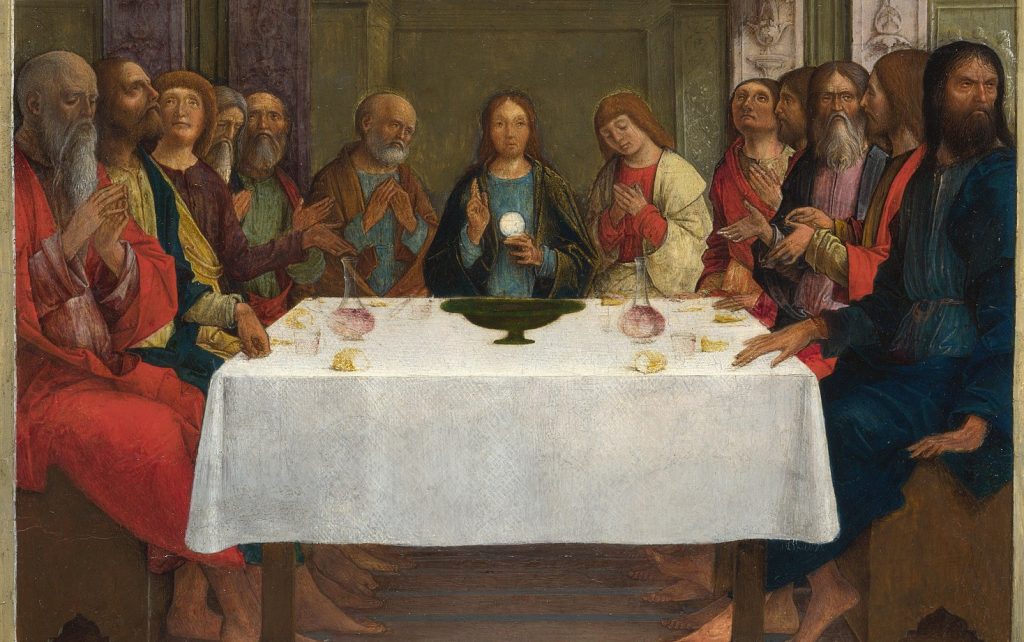The sacraments are what God had in mind for you and me “in the beginning,” when he made the heavens and the earth.
This may come as a surprise. Though we revere the sacraments, too often Catholics treat them as something the Church teased out of a few New Testament proof-texts. That, however, is precisely backward. It would be more accurate to say that the Bible is what God’s people teased out of a providential plan in which God’s New Covenant sacraments were already present from the first moments of the Old Covenant.
There is a unity to the two Testaments of the Bible; and the whole of the Bible is inseparably united with the small details of the Church’s life today.
Jesus himself read the Old Testament this way. He referred to Jonah (Matthew 12:39), Solomon (Matthew 12:42), and the Temple (John 2:19) as signs pointing to his own life. Toward the end of Luke’s Gospel, Jesus took “Moses and all the prophets” and interpreted “what referred to him in all the Scriptures” (Luke 24:27). St. Paul followed his Master in this reading of the Hebrew Scriptures (see Romans 5:14, Galatians 4:24), as did St. Peter (see 1 Peter 3:20–21). St. Augustine summed up this interpretive method in a single phrase: The New Testament is concealed in the Old, and the Old is revealed in the New.
What unites the two Testaments is what unites God and mankind. In the Bible, this bond is called “covenant.” A covenant, in ancient cultures, was a solemn agreement that created a family relation. Marriage was a covenant, as was the adoption of a child. When a family welcomed a new member, both parties would seal the covenant by swearing a sacred oath, sharing a common meal, and offering a sacrifice. Periodically, the two parties might repeat the sacred oath, along with the meal and sacrifice, in order to renew the covenant bond. This is how God made his covenant with Moses, a covenant that was renewed annually in the Passover meal.
Nor did this arrangement end with our redemption. Indeed, the only time Jesus mentioned the New Covenant was in the context of his Last Supper — when he offered the first Eucharist (Luke 22:20). Moreover, Jesus commanded his apostles to renew the covenant with God by the same means. “Do this,” he said, “in remembrance of me” (1 Corinthians 11:25).
From earliest times, Christians commonly called this action by the Latin word “sacramentum.” Both Roman Christians and their pagan persecutors used the word to describe the ritual worship of the Church.
And sacramentum means “oath.” The Roman governor Pliny said that the Christians in his province met before dawn to sing hymns and bind themselves by oath to Christ, as they shared “an ordinary kind of food.”
Thus, in the early Church — as in the practice of our parishes today — we see the Old Covenant oaths revealed and fulfilled in the New Covenant sacramentum.
For a Catholic, there’s a real sense in which little has changed since the days of the Acts of the Apostles.

